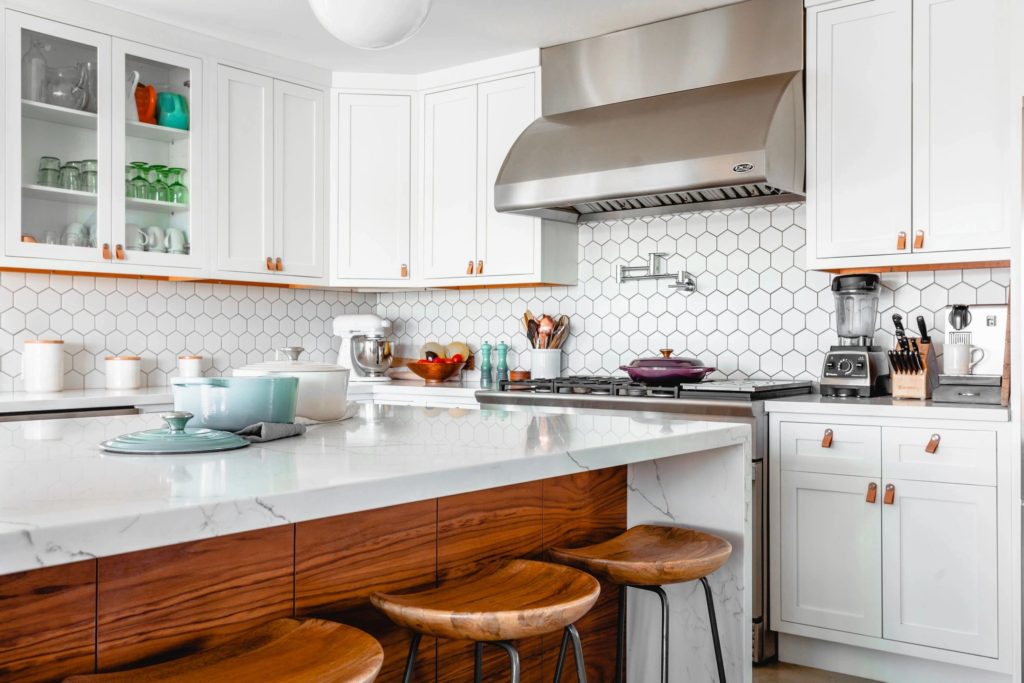
When you stage a home, you’re trying to show it in its best light. It should be styled in a way that highlights its best assets while downplaying its faults. Professionals real estate agents understand this, and that’s why they go to great lengths to ensure that any home on the market is immaculately clean and equipped with fresh, attractive furnishings. But if you’re selling your own home, you’ll face a unique set of challenges.
Unlike real estate companies that have robust communication streams and many hands on-deck, you’re likely trying to keep in touch with potential buyers while juggling your own job and personal responsibilities. Luckily, staging your home doesn’t take much more than a bit of foresight and some elbow grease. Read on for our best tips on staging your home like the pros when it comes time to sell.
Do a deep clean
Doing a thorough cleaning of all the living spaces is one of the most important steps when it comes to staging your home. Nobody wants to live in somebody else’s mess, and every imperfection that a potential buyer notices deducts from their estimated value of the home.
So you’ll want to clean every corner of your home. Make sure the floors are vacuumed, the windows are polished, and any dust or dirt is gotten rid of.
When cleaning, pay special attention to the kitchen and bathrooms. The kitchen appliances and countertops should be sparkling clean, free of any grease or food matter. In the bathroom, the toilet and shower should be so clean that they basically look unused. The room should be spotless, all the way down to the grout.
Take care of clutter
Too much clutter can make a space look small and crowded. And it doesn’t just encroach on the space, it also forces your own style and personality upon potential buyers, whose sensibilities may be entirely different from your own.
Therefore, you should store away all the unnecessary items and trinkets you would usually have around the house and just keep the essentials. Don’t stuff all your clutter into an empty closet either—visitors are going to want to look over every part of the house, and when they open up a closet to see shelves full of random items it’ll have a negative impact on how they perceive the closet space. If you don’t already have a new place where you can store your excess stuff, then consider renting a temporary storage unit.
Clear out personal items
While the family pictures on the mantle might make you feel at home, they won’t have the same effect on the strangers who are visiting your house. In staging your house, you should make an effort to depersonalize it.
Remove family pictures, personal items, and anything else that makes the house uniquely yours. By doing this, you’ll provide visitors with something of a blank slate, and potential buyers will be able to envision the space as their own home rather than feeling like they’re taking a tour of someone else’s.

Keep pets away
Even though dogs and cats are beloved by so many, it’s unlikely that potential buyers will find them appealing. Instead, they’ll probably be more focused on the stains and smells left behind by a pet. This is why you should remove any signs of your pet from the house. Clean up fur, treat lingering stains, and put things like food bowls, toys, and pet food in storage.
Make visitors feel at home
While you do want to clean up the house and remove your personal effects, you shouldn’t make the space completely sterile. Potential buyers want to feel like they’re in an idealized version of what the house could be, so cater to that idea by creating a warm and inviting atmosphere for visitors.
There are many ways to go about achieving this. You could offer freshly baked cookies at the door or put out a healthy smoothie for guests to enjoy. You might also pick up some fresh flowers and put them in a vase or set the dinner table to make the space feel even more homely.
Turn up the lighting
One of the first things visitors will notice when walking into your home is the lighting, so make sure your house is well-lit. Clean windows and open curtains around the house to let natural light inside. This is an important step, as the amount of natural light a home gets is a major consideration for many potential buyers.
Also, switch on the lights in the home and bring in supplemental lighting anywhere that needs it. Purchase bright new light bulbs to replace any of the existing ones that are weak or burnt-out.
Apply a fresh coat of paint
Clean up the walls of your house for visitors by removing any previous wallpaper and applying a fresh coat of paint. It’s a simple task that can completely transform the room and make it look new again.
When choosing the paint color, opt for neutral shades rather than bolder ones. After all, you want to cast a wide net and bright, bold colors on the walls might not appeal to everyone. So stick with warm neutral shades that add to the welcoming atmosphere you’re attempting to build.

Optimize the exterior
Curb appeal is extremely important when you’re trying to sell your home. Potential buyers most likely won’t even walk in the house if they’re put off by its exterior. This means you have to ensure that the facade of your home and the yard, if you have one, are in great shape.
Trim the hedges, cut the grass, and remove any unsightly weeds from the yard. If the paint on the outside of your home is peeling, consider giving it a touch up or, if that’s too much work, power wash it to remove dirt and grime. Also give the outside of the windows a good washing to make them sparkle.
In addition to making all the existing parts of the exterior look nice, you might even introduce new items that improve the look of your home, such as freshly planted flowers or patio furniture.
By properly staging your home, you can make it sell faster at a higher price. Every bit of time and work you put into the staging will likely pay dividends in the end. So be sure to go the extra mile in trying to turn your old house into a stranger’s dream home.


 See Our National Coverage Map
See Our National Coverage Map





